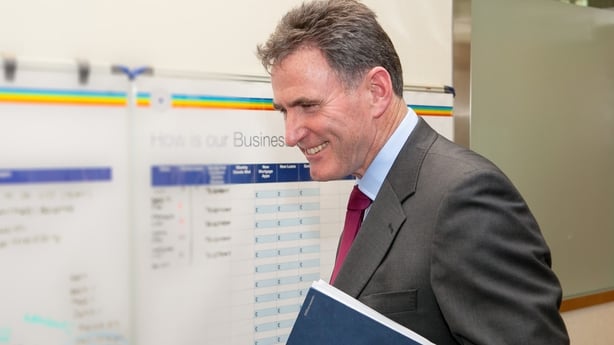Royal Bank of Scotland is setting up a £400m scheme to reimburse fees to customers who say they were mistreated by its small business restructuring unit as it seeks to end one of its longest customer service battles.
RBS said it would set aside the sum after years of defending itself against claims that its Global Restructuring Group (GRG) pushed some companies into bankruptcy so it could pick up their assets more cheaply.
After a three-year investigation, Britain's Financial Conduct Authority (FCA) effectively cleared the bank of the most controversial allegations brought by hundreds of customers.
Its GRG customers had said the bank systematically killed off healthy businesses for profit in the wake of the credit crunch.
RBS admitted some wrongdoing over its handling of small businesses, but stopped short of saying they were deliberately pushed into administration.
"However, serious failings have been identified and they make for very uncomfortable reading. We deeply regret the mistakes that we have made in the past," RBS chief executive Ross McEwan said.

RBS admitted it could have managed the transfer of customers to GRG better and should have explained changes to management and sales charges more carefully.
The fee refunds and launch of a new complaints scheme could help RBS, more than 70% owned by the UK taxpayer, avoid costly litigation over the GRG allegations.
However, RGL Management, which is leading a group action against RBS over the claims, said it still plans to sue the bank early next year.
"£400m is wholly inadequate. We are aware that claimants have losses well in excess of £1 billion," James Haywood, CEO of RGL, said.
"RBS are offering as little as possible in a cynical ploy to head off litigation," he added.
Other ex-GRG customers were also quick to criticise the FCA's conclusion and questioned the timing of the announcement on the day of the US presidential election.
Only £300m of the cash set aside by RBS will be used to reimburse fees and pay possible compensation to former customers, with the remainder covering the costs of setting up the complaints process, RBS told reporters in a conference call.
Only 4,000 customers are estimated to have paid the complex charges, meaning just one in three GRG customers should expect a refund.
RBS played down fears the scheme could eventually rival the costs of compensating customers who were mis-sold payment protection insurance (PPI). The PPI scandal has cost British banks more than £25 billion.
RBS said the total redress depended on the volume and outcome of complaints it receives.
While an investigation did find examples of poor practice at the unit, the regulator said customers transferred to GRG were already showing clear signs of financial difficulty.
It found no evidence of a widespread practice of putting customers in the unit for inappropriate reasons.
The clashes with former borrowers have been among the most damaging to RBS's reputation since the financial crisis, striking at the heart of the bank's core strategy to become Britain's most trusted retail and business lender.

